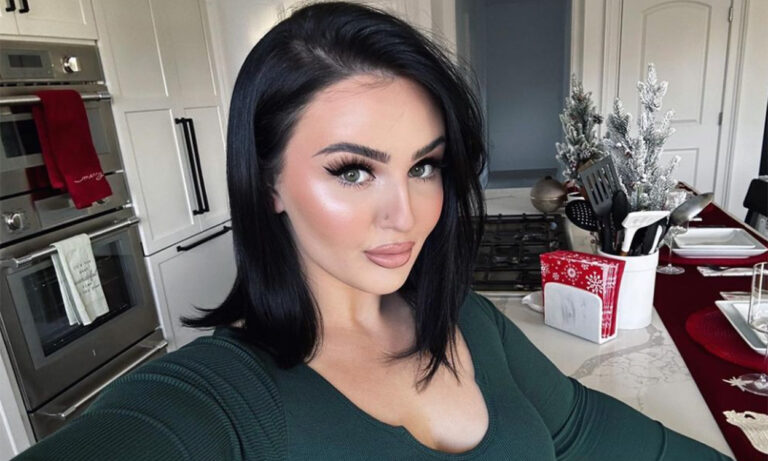Unpacking the controversy behind TikTok beauty influencer Mikayla Nogueira and #LashGate
Since dinosaurs roamed the earth, beauty influencers have been magnets for drama. From James Charles to Jeffree Star, some of the most vicious (and petty) arguments and controversies online have originated from within the inner makeup sanctum. And now, it seems as though TikTok’s favourite cosmetic creator is under fire for an apparent advertising mishap.
Mikayla Nogueira is a 24-year-old beauty influencer who’s been posting on TikTok for almost three years. She’s managed to accumulate over 14 million followers on the platform made up of a loyal fanbase due to her down-to-earth nature and genuinely impressive makeup skills. However, it seems as though some of Nogueira’s following might be about to rethink where to put their trust.
On 25 January 2023, Nogueira posted a video to her page gushing over the new Telescopic Lift L’Oréal mascara. In the video, she exclaimed how the product “literally just changed [her] life,” adding “this looks like false lashes.”
@mikaylanogueira THESE ARE THE LASHES OF MY DREAMS!! @lorealparisusa never lets me down 😭 #TelescopicLift #LorealParisPartner #LorealParis @zoehonsinger
♬ original sound - Mikayla Nogueira
Now, sponsored videos are nothing new—especially when it comes to the world of beautubers (yep, beauty YouTubers) and TikTok makeup creators. However, it became pretty clear that Nogueira was getting a little more ‘artificial’ help to create such an insane lash look. To be frank, it looked as though she’d added the mascara, jumped off camera and added a false lash on, before then cutting back to being on screen. It doesn’t take a beauty expert to spot a lash line.
Almost immediately after the clip was posted, users began flooding the comments section with questions such as: “Girl, did you add falsies at the end? We can see the length in the outer corner,” and statements like, “Don’t gaslight me right now Mikayla.”
Oh, and if you thought people were simply playing around, the term #LashGate is currently trending on TikTok. The internet is truly a haven for chaotic gen Zers.
@e.mo.tions ♬ Blade Runner 2049 - Synthwave Goose
I think the reason so many people are not only perplexed by the video, but genuinely frustrated, is because Nogueira is still denying it. Rather than turn off the comments section under the video, like so many other worried creators, the influencer has been actively replying to the accusations, stating: “Noooo omg L’Oréal would never allow that in a partnered post!!! But y’all proving my point.”
Unfortunately for Nogueira, this isn’t the first time she’s been caught in TikTok’s ruthless web. In 2022, the creator received a tidal wave of criticism after posting a video wherein she stated: “Literally just finished working, it’s 5:19 pm—try being an influencer for the day, try it.”
Naturally, audiences were pretty taken aback by the claims. Being an influencer can of course come with its difficulties and struggles. However, considering the insane financial crisis facing millions of people at the moment, alongside the fact that crucial public sector workers are fighting tooth and nail for fair pay—it’s highly tone deaf to lament over the labours of filming a lipstick tutorial.
In regard to #LashGate, misleading viewers is one of the beauty industry’s most valuable strategies. Particularly, because we operate in a time where our favourite influencers are our most trusted advisors. So when they recommend something, we believe them. But it’s important every once in a while to stop and acknowledge the fact that not everything that comes out of their mouth is honest.






